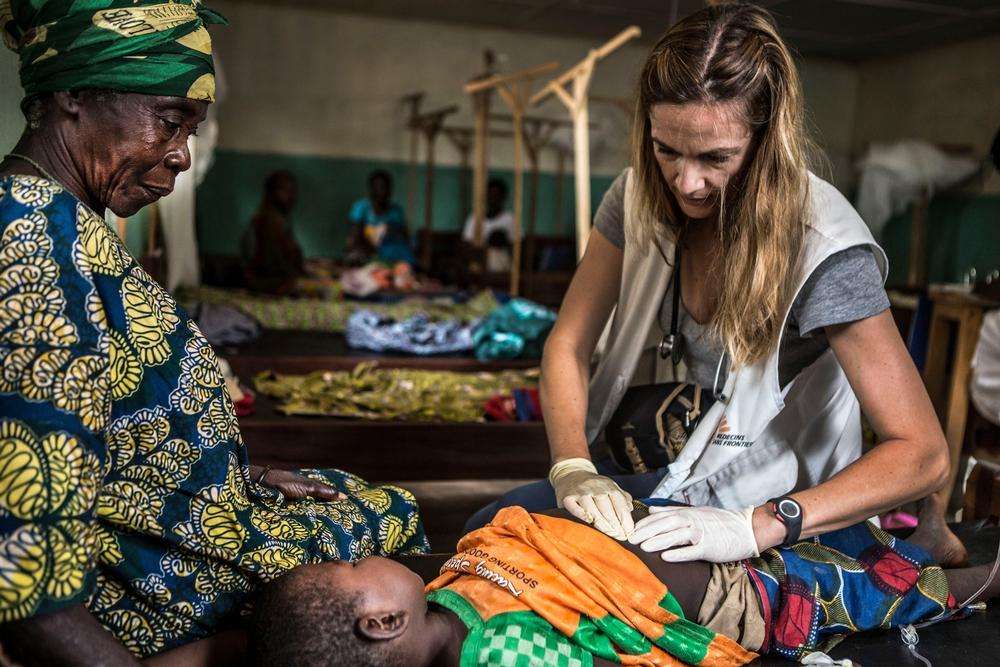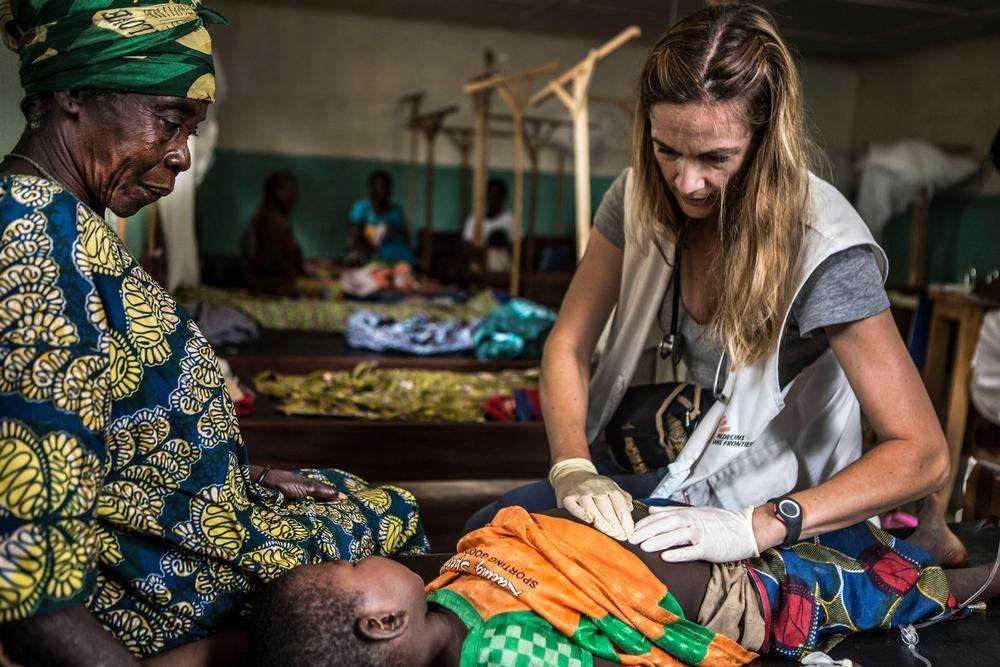NEW YORK—A massive humanitarian crisis in the Central African Republic (CAR) is growing even more severe, as fighting and threats against civilians near the town of Bouca have driven hundreds more people to flee, the international medical humanitarian organization Doctors Without Borders/Médecins Sans Frontières (MSF) said today.
Roughly one in ten people in CAR have been driven from their homes by violence that has overwhelmed the country since a coup in March 2013. Recent clashes near Bouca, in northeastern CAR, have pitted self-defense groups, known as anti-Balaka, against former Séléka forces, which backed the coup. MSF is calling on the United Nations and the international community to increase humanitarian aid to the population.
"The fighting in Bouca is indicative of how horrific violence is engulfing the Central African Republic," said Sylvain Groulx, MSF head of mission in CAR. "We are extremely concerned about the living conditions of the displaced, who are overcrowded in churches, mosques, or schools; or living in the bush with no access to health care, food, or water, and are threatened by epidemics. Much more needs to be done and it needs to be done now."
Several people were killed in the fighting near Bouca, and survivors were treated at an MSF clinic, one of whom died while being transferred to a hospital in Batangafo.
The violence near Bouca follows deadly clashes in September, when about 100 people were killed in attacks on civilians by armed groups, 700 houses were burned down, and thousands of people were displaced. Since then, people have been living in a climate of fear and intimidation. On November 19, an ultimatum was given to a community of 700 people seeking refuge in Bouca’s Catholic mission, demanding that they leave.
"More than half of the 700 people seeking refuge in the Bouca Catholic Mission have fled," said Matthieu Amiraux, MSF field coordinator in Bouca. "The situation is very tense—Muslim families are leaving the town in droves. All you see in town anymore is armed men."
In the neighboring town of Bossangoa, an estimated 35,000 displaced people are in need of assistance. MSF began operating mobile clinics in mid-November to reach people hiding in the bush, where teams continue to witness the effects of ongoing violence and the lack of a comprehensive humanitarian aid response.
The United Nations and other humanitarian agencies should increase their presence on the ground and their response to this neglected crisis. While MSF has been required on a few occasions to temporarily evacuate its teams from locations in CAR, its activities have not stopped, and MSF has expanded its programs in the country since December 2012.
After decades of instability, the Central African Republic (CAR) now faces a chronic humanitarian and health emergency. MSF has been active in CAR since 1997 and runs seven regular projects in Batangafo, Boguila, Carnot, Kabo, Ndéle, Paoua, and Zémio. Since March, MSF has been operating emergency programs in Bossangoa, Bouca, and Bria. A mobile emergency team stands ready to assist in violence-affected areas and so far has been dispatched to Bouar, Mbaiki, and Yaloké.





